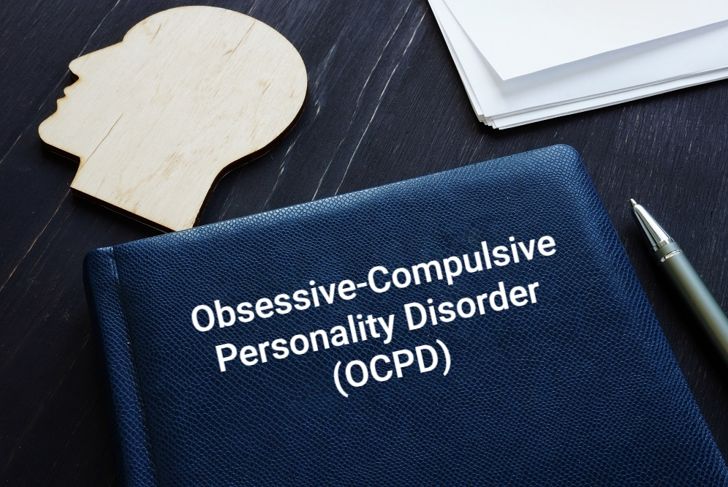Obsessive-compulsive personality disorder (OCPD) is a mental health condition that causes a person to focus on rules, orderliness, and control. People with OCPD often focus on work or similar projects, opting not to pursue social relationships or leisure activities. The disorder is often comorbid with some other condition, causing a large overlap of symptoms.
Causes
While experts have yet to determine the exact cause of OCPD, they believe it involves a combination of genetic and environmental factors. Evidence clearly indicates that OCPD is inheritable, but few studies focus on the specific genetics. Some researchers believe that controlling, unavailable, or overprotective parents contribute to OCPD. Some children develop OCPD traits in an effort to be “perfect” and avoid punishment.
Millon’s Subtypes
Theodore Millon was an American psychologist who made significant advances while studying personality disorders. He described five types of OCPD:
- Conscientious Compulsive: dependent, rule-bound, earnest, hardworking, dreads errors and mistakes
- Puritanical Compulsive: paranoid, often religious, battles own impulses, views specific groups as enemies
- Bureaucratic Compulsive: signs of narcissism, prefer defined roles and hierarchies, derive identity from their work
- Parsimonious Compulsive: hoarding and possessive, suspicious of others, self-sufficient and distant
- Bedeviled Compulsive: negativistic, procrastinates, battles with desires and will, engages in self-defeating behavior
DSM-5 Diagnosis
The DSM-5 requires that a person meet at least four of eight criteria to qualify as having OCPD:
- Preoccupied with details, lists, rules, or order to the extent that they lose the main objective of the activity
- Shows perfectionism that interferes with task completion
- Excessively devotes themselves to work and productivity
- Overconscientious and inflexible about morality or ethics
- Unable to discard objects even if they hold no sentimental value
- Reluctant to delegate tasks or work in groups.
- Avoids spending, hoards money
- Rigid and stubborn
ICD-10 Diagnosis
The World Health Organization uses similar criteria for diagnosing OCPD, [citation href=”https://www.who.int/classifications/icd/en/bluebook.pdf” title=”WHO” desc=”The ICD-10 Classification of Mental and Behavioural Disorders”]available in the ICD-10. However, they use the term “anankastic personality disorder” rather than OCPD. Additionally, it excludes hoarding as one of the qualities of OCPD. The ICD-10 also requires that a person satisfies a set of general personality disorder criteria before qualifying for a specific personality diagnosis.
Obsessive-Compulsive Disorder
People often confuse OCPD with obsessive-compulsive disorder (OCD). Despite having similar names, they are distinct conditions. However, a person with OCPD can have OCD, as well as the reverse. Both disorders feature similar symptoms, but OCD is invasive and stressful. Additionally, people with OCD often despise their symptoms, while those who have OCPD view them as natural and correct.
Asperger Syndrome
OCPD and Asperger syndrome have many similar symptoms and are often comorbid. List-making and inflexible adherence to rules and scheduling are the most prominent examples of this. A 2009 study found that around 40% of adult participants with Asperger syndrome also met the requirements for an OCPD diagnosis. One notable difference is that people who have Asperger syndrome tend to have worse social skills than those with OCPD.
Eating Disorders
Around 13% of people who have eating disorders also have OCPD. Additionally, research shows that OCPD often leads to more negative outcomes and predicts more severe symptoms of conditions like anorexia nervosa. The self-imposed perfectionism of OCPD may involve creating rules for eating to combat issues like weight-gain or anxiety. However, this then leads to the development of an eating disorder.
Other Conditions
OCPD is also comorbid with a wide range of other conditions. In particular, it is highly comorbid with Cluster A personality disorders like paranoid or schizoid personality disorder. People with OCPD are also more likely to have hypochondriasis. Additionally, Parkinson’s disease and Ehler-Danlos syndrome may co-occur with OCPD.
Treatments
A person with OCPD generally has three routes of treatment available to them. The first and arguably most effective is cognitive behavioral therapy or CBT. This is a common type of counseling where a mental health professional helps someone with OCPD learn to manage their symptoms. Some people require medications, such as selective serotonin reuptake inhibitors, to ease their anxiety. Relaxation training through yoga or meditation can also help.
Outlook of OCPD
Unlike many other personality disorders, OCPD has a positive outlook. The rigidity and structure of OCPD prevent many common complications of personality disorders, such as substance abuse. However, people with OCPD often struggle with social isolation, anxiety, anger, and depression. Having a strong support structure of people who encourage and assist in treatment can ensure a positive prognosis.

 Home
Home Health
Health Diet & Nutrition
Diet & Nutrition Living Well
Living Well More
More




















